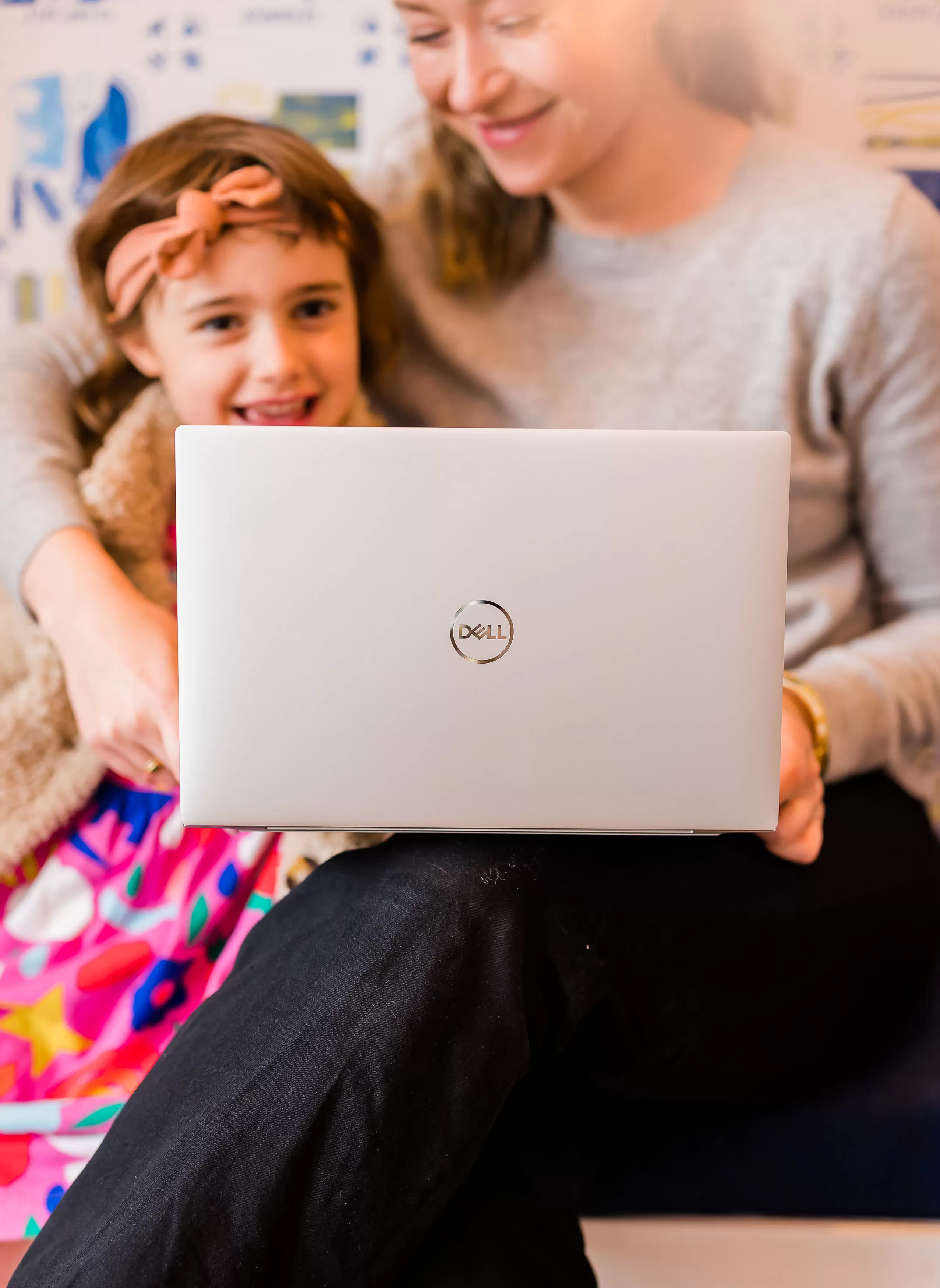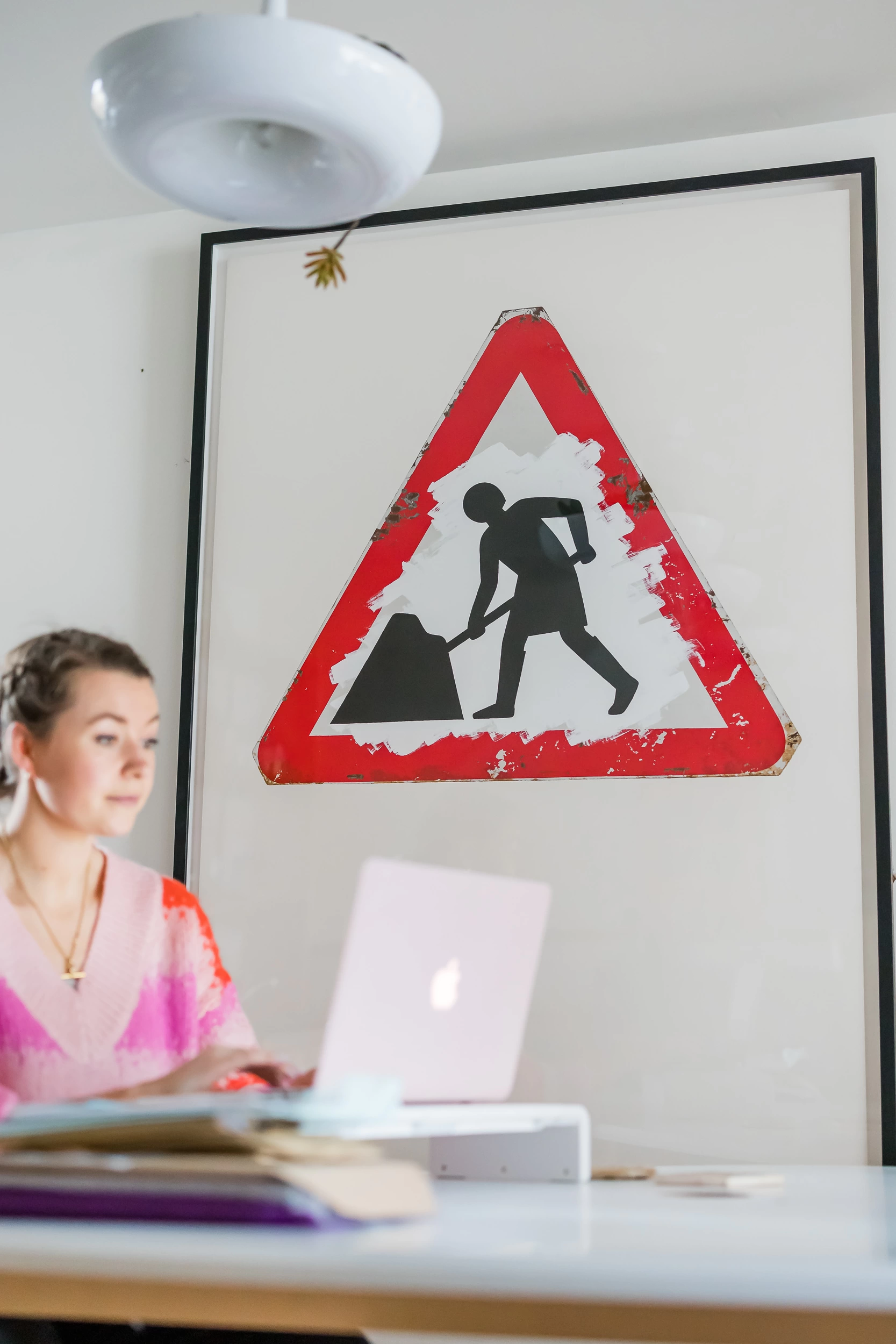NEXT DROP 6TH MARCH 7AM. JOIN CLUB HOLL & CO FOR ACCESS

5 tips on choosing the right computer for your small business
Finance, legal & tech
By Team Holly & Co, with Dell Technologies
29TH SEPTEMBER 2023
Finding the best computer to suit your needs isn’t always easy — and when you’re a small business, you need to get it right. We’ve teamed up with the specialists at Dell Technologies to get some expert tips and a buying guide.

Choosing the best computers for small businesses
We asked our friends at Dell Technologies for some advice on which questions small business owners should ask themselves before they commit their hard-earned cash to a sleek new computer. From busting age-old myths about spending, to who you should really be trusting for advice, we’ve compiled a list of five ‘must dos’ before you checkout. And to be honest, at Holly & Co, we’re all now kicking ourselves that we hadn’t thought about many of these brilliant tips ourselves before shopping…
We all know the scene. After months of twiddling your thumbs whilst the ‘circle of doom’ whirls feverishly on your tired computer’s face, you’ve finally got around to buying that new machine. You’ve selected the laptop, desktop or tablet you want (or if you haven’t yet, read our business advice article on laptops versus desktops). You think you know which will be the energy drink to your sluggish spreadsheets and will download files faster than Raducanu serves aces. Your mouse hovers over the ‘add to basket’ button but... wait! Buying a computer for your small business may mean that you have a different journey to go on than your average consumer when it comes to deciding which shiny new object to choose and furthermore, how to buy it.
5 top tips for choosing a new computer
Here’s what you need to consider…
1. Decide if you need a business computer, a personal computer or both
In a dream world, your laptop would be all yours… But living with family can sometimes mean that you have to share. Sometimes it’s not only your business documents that are stretching your taskbar. But should you be worried? If you are looking specifically for a ‘business’ machine, it can be far more secure and beneficial to buy one with a ‘business’ package.
- Sharing a computer can lead to you having less memory space free for your business.
- It can also increase the risk of a data breach or accident.
- Plus if a laptop you’ve bought as a consumer goes wrong and the machine requires sending off to fix, you may be left without a computer for a couple of weeks. However buying through a business route will mean you have next-day support so that you can pick up where you left off within 24 hours. Business-class products are typically more expensive, but the added security benefits and peace of mind can be worth the premium so it’s worth thinking about.
- If it’s a business computer and your company aims to be sustainable, you can get tips on finding out ‘Is your tech sustainable?’ first too.
Buying a computer for your small business may mean that you have a different journey to go on than your average consumer when it comes to deciding which shiny new object to choose and furthermore, how to buy it.
2. Work out the rough amount you’ll need to spend on a computer
- Stick to your budget. Like buying a car, it can be easy to get swept away in the flurry of optional extras and features. A commonly held myth is that the more money you spend, the better the product is. Unlike a fine wine, it is worthwhile remembering that your computer will not get better with age, so stonking up thousands of pounds with the anticipation that your machine will last forever may not be a smart decision.
- Remember, the average laptop has a lifespan of four years, and then it will start to show signs of age. That is not to say that all machines are created equally, and there are components of the computer that are worth the investment. A decent processor for anyone running software is a must. The better the processor, the faster your computer.
- Many computer technology companies now offer ‘hire purchases’ where you can ‘rent’ your machine too (like leasing a car on finance). It means that you are not having to pay a hefty upfront cost and can trade-in your computer to keep pace with new technology. There will be certain thresholds you have to meet to qualify, but spreading the cost might be a soothing decision from a cash-flow perspective.
3. How do I choose the right computer for my needs? Get advice
Most of us tend to have a tech-savvy friend — the one you ring when your Wifi router has gone down, your television won’t switch on, or you’re having trouble working out where on earth the headphone port is supposed to be. If you are about to invest hard-earned cash in a new machine, it is probably best to seek a second (or third) opinion. Although retail assistants will tell you the pros and cons of the device you are buying, there is the risk that they will be biassed to what their company stocks rather than guiding you elsewhere. Speaking to someone who will only have your best interests at heart first is sensible. If none of your friends are tech-minded, there are services out there that will be able to help you. For instance, Dell offers a free tech advisor service where an expert can discuss your needs and will dig deeper into what would work for you. They don’t have the incentive to sell you a specific type of machine, so you can trust that your needs will tailor the decision you come to.

Unlike a fine wine, it is worthwhile remembering that your computer will not get better with age, so stonking up thousands of pounds with the anticipation that your machine will last forever may not be a smart decision.
4. How do you choose your monitor size and processing speed? Ask someone
Monitor size will be partially based on preference, but specific screen sizes will be vital for creative businesses who will be video editing or using graphics. A grainy image of your fabric sample is good for nobody! If your business is creative, then the clarity of your display will be critical. The display, ranging from standard HD to 8K, will be responsible for colour accuracy. A sharper display will be essential for anyone creating a product or designing on their machine. All that glitters isn’t necessarily gold though. So bear in mind that a sharp display needs to be partnered with a super-fast processing speed to keep pace with those graphics — and if you’re not sure, ask. It’s an important consideration.
5. Work out how much memory and storage you need on your computer
As your business grows, the likelihood is that your storage will need to as well (ie. the place where all your digital data is saved). It used to be expensive, but the price has reduced in recent years, and you should now expect to get a terabyte of storage for a reasonable fee. As a rough guide, a single terabyte can hold one thousand copies of the Encyclopedia Britannica. But what actually ‘uses up’ storage? It tends to be software, apps, files, documents, music, video; it’s a lot for one machine to bear. So make sure you have chosen a device with enough capacity.

Understanding memory is as easy as answering the question: how many things do I want to be doing at once?

Why it’s important to think about data security
There are different places where you can store your data, and some are safer than others. Data can be stored in the ‘cloud’, which means it’s not stored on a physical server and runs on the internet. However, although this provides you with the ability to access it at any time and not have a bulky computer tower with external hard drives if the cloud goes down, you may have issues accessing the information you need. A personal hard drive will be more reliable. The best-case scenario is hybrid storage, where you utilise both.
How much memory and storage do I need?
Answer this: how many things do I want to be doing at once? Once you’ve answered that you can pick a computer to meet your needs. The more gigabytes (how we measure memory) you have, the more you can multitask without all those activities becoming painfully slow. It is recommended that the average business user should have 16 gigabytes of memory so that your computer can keep up with you!
Choosing the right computer: key takeaways…
Hopefully, that’s given you more of a steer and you are now about to buy the computer of your dreams. As a recap, the main points to consider are to…
- Decide if you need a business computer, a personal computer or both
- Work out the rough amount you think you’ll need to spend on a computer
- Get expert advice on what kind of computer might be right for your business
- Explore the finer details such as your monitor size and processing speed
- Plan your storage and memory needs
Remember, you can always contact a Dell Small Business Tech Advisor with any questions you might have on 0800 085 4878 (it’s free!) or use their online chat service, and they’ll point you in the right direction. Or find out more about our friends at Dell here. Wheel of doom, be gone!
Images: 'Fun Sized Gold Leather Half Penny Purse' — by Natthaker.
Related content
MORE ARTICLES ON FINANCE, LEGAL & TECH

How do I protect my designs from being copied?
Finance, legal & tech

The cost of living impact on small businesses: should you increase prices?
Finance, legal & tech

4 tech secrets every small business needs to know
Finance, Legal & Tech

7 cyber security tips on how to protect your business from hacking
Finance, legal & tech

The 5 pieces of equipment you (really) need when starting a small business
Finance, Legal & Tech

How to grow your business with steady sales and make your income last year round
Finance, legal & tech

What is a financial feminist? And why is finance a feminist act?
Finance, legal & tech
Be the first to know
Sign up to our emails for brand new small business magic and inspiration. And if you create an account, you’ll also get exclusive product drops, discounts and more from Club Holly & Co, too.
